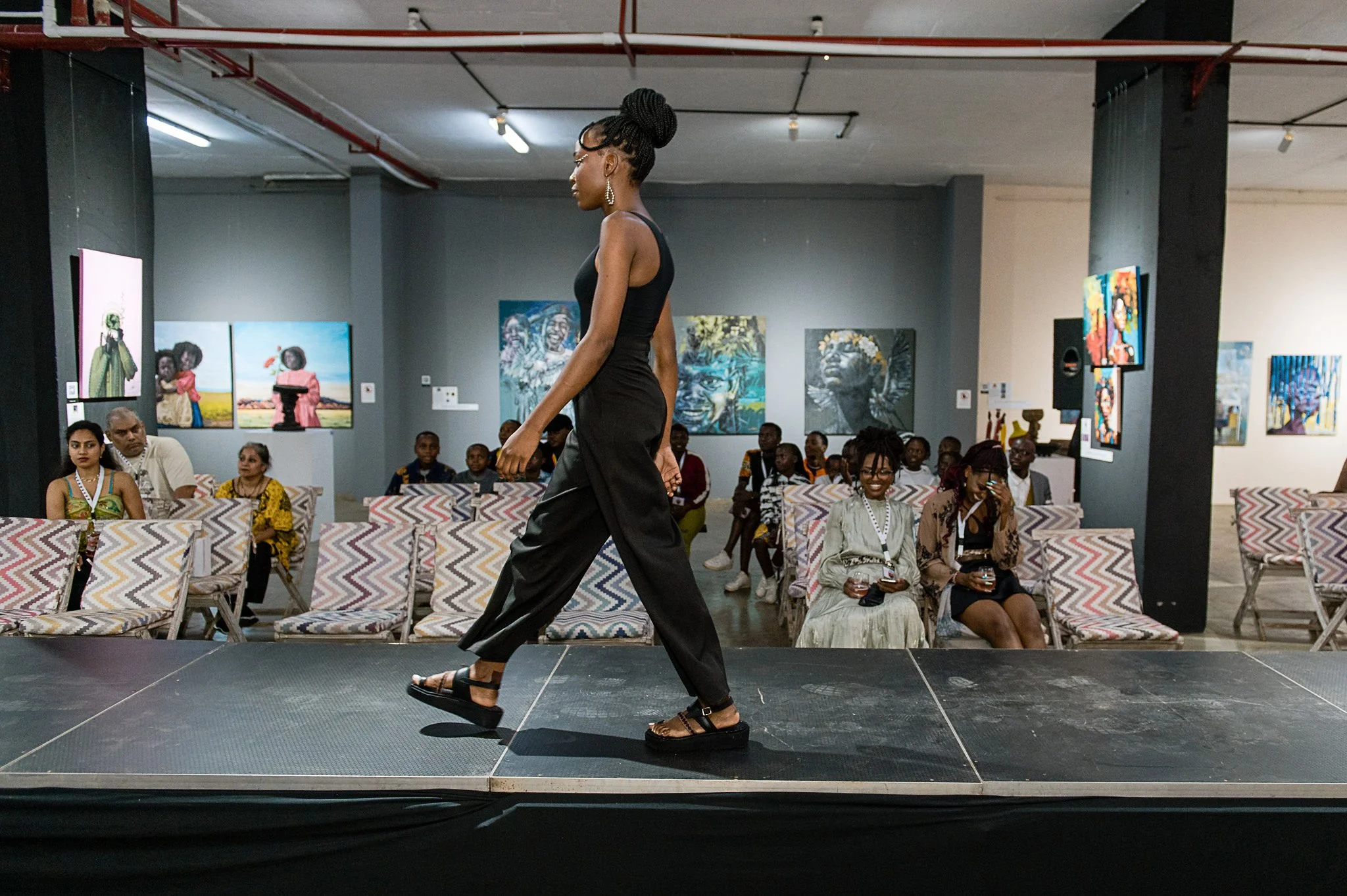From Vision To Impact: George Otieno's Journey With Akala 21
In an era where sustainability is more than just a buzzword, Akala 21 is redefining fashion by turning discarded tires into stylish, durable footwear. At the helm of this innovative brand is George Otieno, a visionary entrepreneur driven by passion, creativity and a commitment to environmental conservation and community empowerment. In this interview, he reflects on his journey through overcoming doubt, gaining regional recognition, and the essence of sustainable fashion. He also shares invaluable insights for aspiring entrepreneurs and his hopes for Akala 21’s lasting impact.
Akala 21 was born in the midst of a pandemic. What was the defining moment that pushed you to start the brand?
After finishing high school in 2015, I briefly trained with a group of Jua Kali artisans who specialized in making shoes from repurposed tires. That experience introduced me to the craft, but when I joined university in 2016 to study fashion design, I had to put it on hold. Fast-forward to 2020, I finally had the space to revisit those ideas. By July, I was sketching designs and developing concepts, which eventually led to the creation of Akala 21.
What is the story behind the name Akala 21, and how does it reflect your brand ethos?
Akala is a term used in multiple Kenyan communities, including the Luo, Maasai, and Kamba, to describe sandals made from upcycled tires. In Kenya, Akala sandals have a long history as durable, resourceful footwear. Akala 21 is an evolution of that tradition, and our way of modernizing the concept for the 21st century. We focus on improving their utility, practicality, and aesthetics to meet contemporary fashion and lifestyle needs. Today's consumers want stylish, comfortable, and functional footwear, and that's exactly what we're creating.
Upcycling old tires and fusing them with leather to create footwear is a brilliant idea. What was the biggest challenge in making it both functional and stylish?
The biggest challenge lies in the design process, especially with sandals. Unlike closed shoes, where construction is the most complex part, the difficulty with sandals is in designing functional and stylish straps. If the straps prioritize fashion over functionality, the sandal becomes unwearable or uncomfortable. There’s an important balance between form and function and how the straps interact with the foot and distribute pressure matters. In art, we talk about positive and negative space, and with sandals, the foot is the negative space while the straps form the positive space. Designing the right interplay between the two is crucial. Poorly placed straps can cause discomfort or even injuries, so every design choice has to be intentional.
How and where do you source your materials?
All our materials are sourced locally and within Africa, ensuring sustainability and supporting regional artisans. Our leather comes from tanneries in Kenya, Uganda, and Ethiopia, while rubber is sourced from local manufacturers to enhance comfort and shock absorption. We also collaborate with artisans who retrieve and prepare upcycled tires from landfills, giving them new life in our footwear. Additionally, our brass buckles are custom-made to ensure uniqueness, and we work with skilled beaders to incorporate intricate detailing into our designs. Every Akala 21 piece is the result of multiple hands and communities coming together to create something both beautiful and functional.
Many eco-conscious brands struggle with pricing perception. How do you communicate the value of Akala 21's craftsmanship to consumers?
One of the main ways we justify our pricing is by emphasizing the quality of our craftsmanship and materials. We use high-quality, genuine materials, ensuring that our products last for years. Another key aspect is the impact we have on the community. Our mass production studios are based in Kibera. By employing artisans from the slum, we contribute to their economic empowerment.
Additionally, Akala 21 provides a service that many other brands, even major ones like Bata, do not offer; after-sales care, including cleaning and restoration. Most manufacturers focus solely on selling new products, encouraging fast fashion by producing items that wear out quickly with no repair options. We take a different approach by designing products built to last and offering restoration services to keep them in great condition. Rather than mass-producing disposable products, we focus on crafting durable, high-quality footwear and providing long-term value to our customers.
Do you have a favorite piece you've designed, and what makes it special?
My favorite piece is the very first one I designed in 2020, the Chako Flip-flop. It holds a deep sentimental value because it was created during the uncertainty of the pandemic, a time when there was no clear direction for many of us. I was still in school, and designing this piece was a way for me to channel everything I had learned in fashion design and textiles at Kenyatta University. The Chako Flip-flop was also inspired by my time in Kisumu, where I briefly trained with Jua-kali artisans who taught me shoemaking. The piece represents a fusion of professional design education, with the hands-on, unstructured learning I received from these artisans. Seeing people embrace and love that design after its launch made it even more special as it was the beginning of Akala 21’s journey.
What were some of the significant challenges you faced in the early years, and how did you overcome them?
Starting in 2020, my biggest challenges were funding and building a team. I had the vision, but without financial backing or the right people to help with production, marketing, and distribution, it felt like I was doing everything alone. The key to overcoming this was consistency. By staying committed, learning from mistakes, and proving my dedication, I began attracting the right people, both a team and customers who believed in the brand. Over time, resilience and patience helped turn those early struggles into growth opportunities.
What moments from your journey are you most proud of?
Overcoming the fear of failure and staying resilient despite doubts and discouragement is something I’m truly proud of. Had I given in to negativity, I wouldn't have had opportunities like showcasing my work in Addis Ababa last year.
Reflecting on your journey, what advice do you have for aspiring entrepreneurs looking to venture into sustainable fashion?
First, ensure your passion for sustainability is genuine. If you’re only in it because it’s trending, your commitment will wane when the conversation shifts. Sustainability isn’t a passing fad, it’s an ongoing movement that requires long-term dedication. Second, innovation is key. Sustainability and technology go hand in hand, so think of ways to integrate advancements like AI or automation to improve efficiency in material sourcing, production, and waste management. The future of sustainability lies in smart, scalable solutions. Finally, keep evolving. The most impactful pioneers in sustainability have remained relevant because they continuously adapt. Stay curious, stay innovative, and always look for ways to improve and push the industry forward.
What legacy do you hope Akala 21 will leave behind?
Akala 21 is about more than just creating stylish, durable fashion. It’s about redefining waste and inspiring change. We want to be known for transforming discarded materials, like tires, into valuable products while educating communities on sustainability. Our impact should go beyond profit. We aim to champion environmental conservation, social responsibility, and innovation, proving that fashion can be both ethical and economically viable. Ultimately, we want to empower people to rethink waste management, embrace creativity, and contribute to a more sustainable future.



